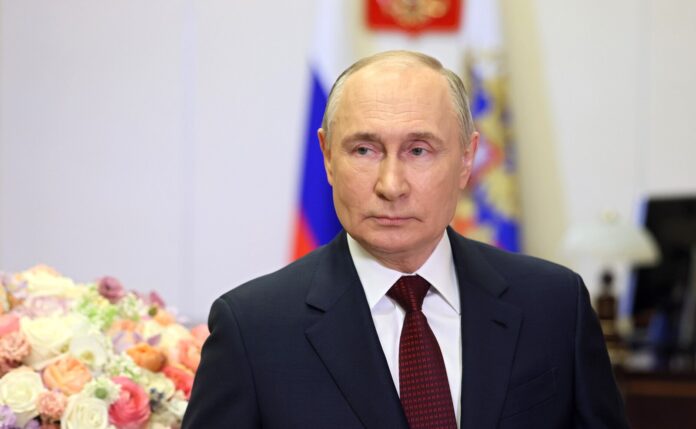In a recent declaration that has intensified global concerns, Russian President Vladimir Putin conveyed a stark warning to Western countries, emphasizing that Russia stands technically prepared to engage in nuclear warfare. This statement arrives amid escalating tensions and just days before an election anticipated to extend Putin’s tenure by six more years. Despite the severe implications of nuclear conflict, Putin also mentioned Russia’s openness for dialogue regarding the situation in Ukraine, albeit under terms grounded in reality rather than idealistic hopes.
Putin’s statements highlight the increased risks and intricate dynamics in the conflict between Russia and Ukraine. He pointed out that, from a “military-technical” standpoint, Russia is poised for such a grave scenario, though he clarified there was no immediate rush towards utilizing nuclear capabilities. This rhetoric serves as a chilling reminder of the delicate balance of power and the potential for escalation into a scenario the world has endeavored to avoid since the Cold War era.
The backdrop to Putin’s warnings is a conflict that has seen Russian forces controlling a substantial portion of Ukrainian territory, following a full-scale invasion in February 2022. This invasion reignited a conflict that had been simmering in eastern Ukraine for eight years. Despite the continuation of hostilities and significant territorial control by Russian forces, Putin asserts that there has been no necessity to resort to nuclear weapons in Ukraine, questioning the need for such drastic measures.
In addition to the nuclear warnings, Putin’s interview touched on other critical issues, including the strategic implications of Finland’s NATO membership. Putin indicated that Russia would respond by stationing troops and deploying systems of destruction along the Finnish border, highlighting the ongoing security dilemma in the region. This stance reflects Russia’s broader concerns about NATO expansion and the perceived encroachment on its sphere of influence.
The global context of these developments is complex, with the United States and its allies grappling with how to support Ukraine effectively while avoiding a direct military confrontation with Russia. The mention of potential U.S. troop deployment to Ukraine was specifically addressed by Putin, who labeled such a move as an interventionist act, further complicating the geopolitical chessboard.
Putin’s interview also revisited the topic of nuclear readiness and doctrine, reminding the world of the catastrophic potential of nuclear weapons and the principles guiding their use. With Russia and the United States holding the majority of the world’s nuclear arsenal, the discussion around nuclear capabilities and doctrines takes on an urgent and grave significance.
As the international community digests Putin’s statements, the conversation inevitably turns to the prospects for diplomacy and negotiation. While Putin professes a readiness to engage in serious discussions about Ukraine, the path forward remains fraught with challenges. The fundamental disagreements over Ukraine’s sovereignty, territorial integrity, and the broader security architecture in Europe continue to impede progress toward a peaceful resolution.
Putin’s stark warnings and the broader context of the Russia-Ukraine conflict illuminate the complex and dangerous dynamics shaping international relations today. The risk of escalation, be it through conventional warfare or the disastrous employment of nuclear arms, emphasizes the critical necessity for dialogue, diplomatic efforts, and a reduction in hostilities. As the world watches closely, the imperative for cautious, measured responses to these challenges has never been more critical.
Image is licensed under the Creative Commons Attribution 4.0 License and was created by Пресс-служба Президента РФ.









